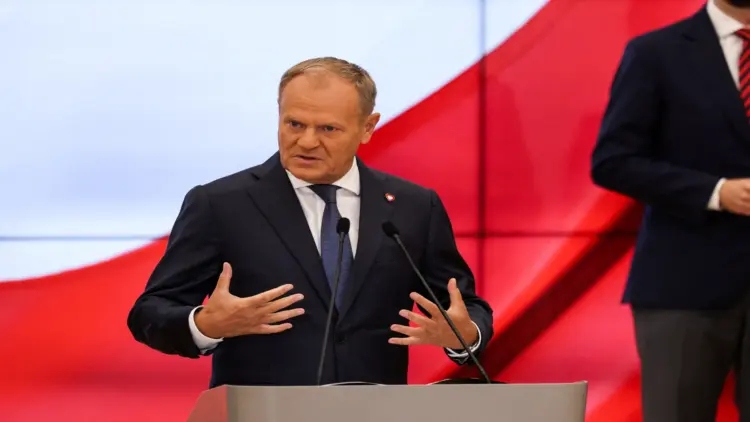Polish Prime Minister Donald Tusk has distilled European fears ahead of the upcoming Trump-Putin summit, and with a candor unthinkable for leaders, he admitted to feeling “fear and hope” as both global superpowers are going to decide the fate of Ukraine with minimal European say. His emotional honesty represents the wider European dilemma of being excluded from making decisions that will substantially redraw the continent’s security map. While Washington vows consultation alongside excluding Europe from the Alaska summit, the bipolar emotions of Tusk reflect the delicate situation of NATO allies who have to believe in American leadership alongside dreading the implications of any agreement made between Trump and Putin.
European Diplomatic Concerns
Poland’s prime minister said on Monday he felt a mixture of fear and hope ahead of a Russia-U.S. summit on the war in Ukraine this week, but added that Washington had pledged to consult its European partners before the talks.
U.S. President Donald Trump will meet his Russian counterpart Vladimir Putin in Alaska on August 15, and Kyiv fears that the two leaders may try to dictate terms for ending the 3-1/2-year war.
“The American side has promised that it will consult with European partners on its position before the meeting in Alaska,” Donald Tusk told a news conference.
“I will wait… for the effects of the meeting between Presidents Trump and Putin – I have many fears and a lot of hope.”
Trump’s Evolving Position
He said that Trump’s recent comments on the war in Ukraine could give the impression the U.S. president was increasingly understanding Ukrainian and European arguments regarding the conflict, but that he was not 100% sure that this position would be lasting.
Trumps attitude toward the European and Ukrainian positions is shrouded in uncertainty which is symbolically deeper issue of the American foreign policy continuity and the justice of the transatlantic relations. The European leaders are finding themselves in the situation where they realize that although they have been loyal members of NATO over several decades, they have only little influence when it comes to critical security decisions being made that impact their own continent, particularly when matters of super power politics come to the fore. The fact that Tusk has already questioned the stability of Trump in his current position indicates the inherent weakness of the diplomatic reassurances during the current era where the personal contact between leaders can free both institutional commitments by reorganization of established alliances.
French, Italian, German, Polish, British, Finnish and European Commission leaders on Saturday welcomed Trump’s efforts to try to end the war, but emphasised the need to pressure Russia and provide security guarantees for Kyiv.
United European Response
Tusk said that the joint statement from European leaders showed that they were united in their approach to Ukraine peace talks, adding that Kyiv must be involved in any such discussions.
“For Poland and our partners, it is clear that state borders cannot be changed by force,” he said. “Russia’s war with Ukraine must not bring benefits to the aggressor.”
Although the joint European declaration is diplomatically affirmative of the peace efforts by Trump, it carries with it the veiled threats of the futuristic outcomes that any deal sweeping Russian aggression or lacking believable deterrence capacities in later tensions might cause. The emotional honesty with which Tusk describes the Trump-Putin summit brings to life the fear of abandonment that dominates the Europeans minds as they have to balance the warrant of peace against act of being discarded by their strongest ally. With Europe playing a bystander role with security destiny discussed in Alaska, the reactions voiced by the prime minister of Poland could end up being prophetic they will mark either the onset of a new sustained peace, or the dawn of a new epoch of European weakness in a more multipolar world.
GCN.com/Reuters.


